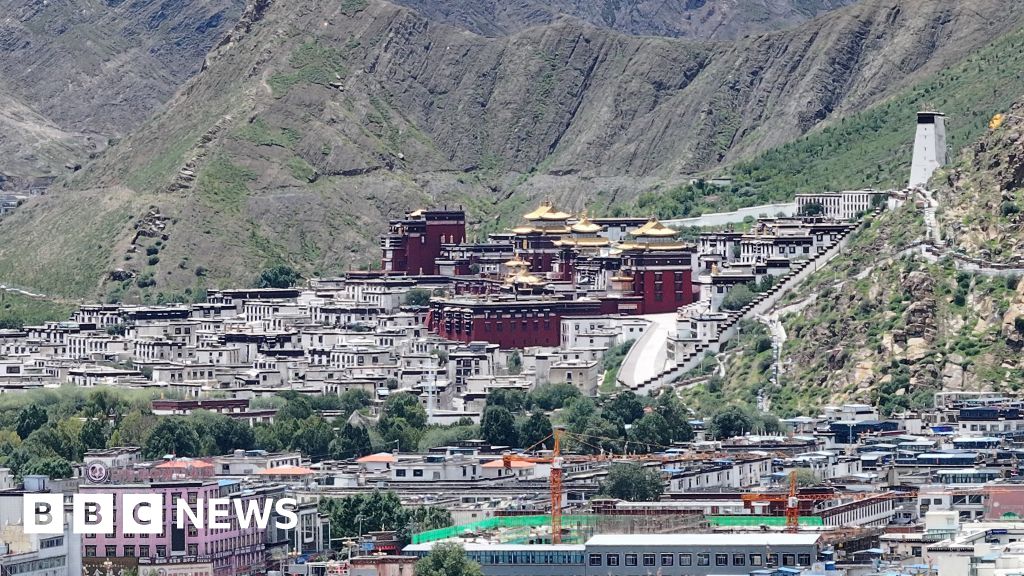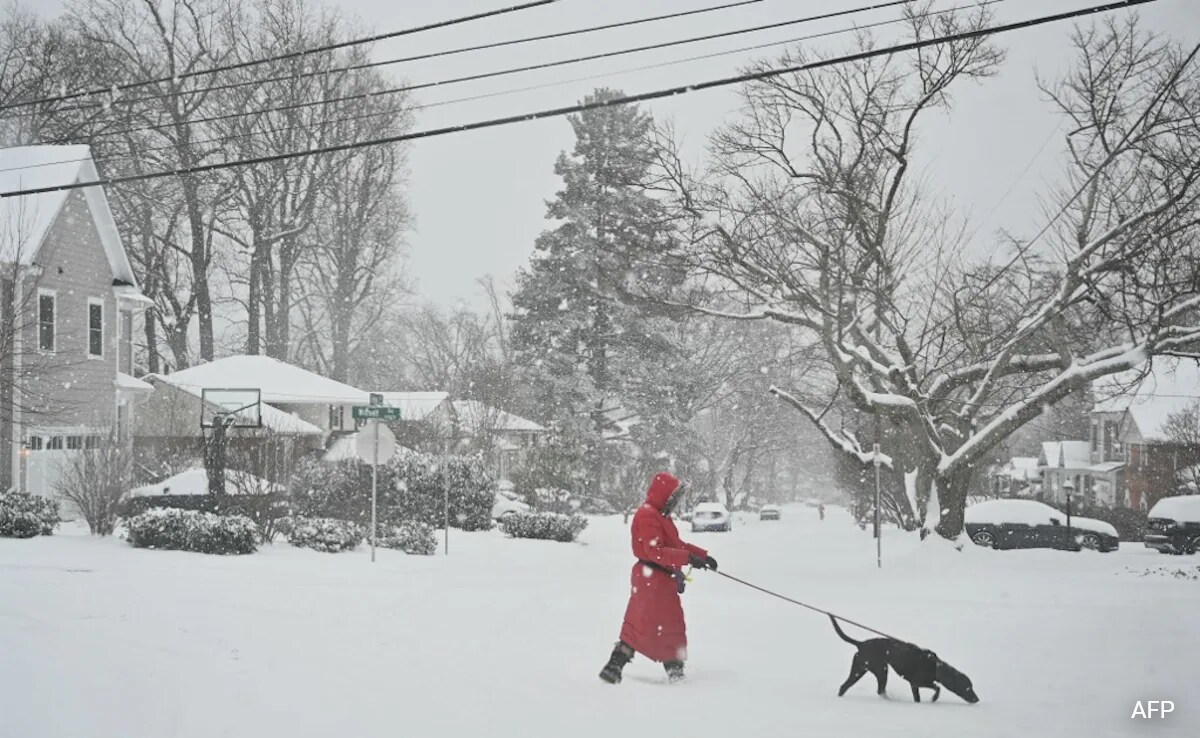
HMAS Brisbane test-fired a US Tomahawk cruise missile (Image: AUSTRALIAN DEFENCE/AFP via Getty)
1 of 4

Hacker in hoodie dark theme Hacker in a blue hoody standing in front of a coding background with bin (Image: Getty Images)

A handout picture provided by the Iranian Defence Ministry on December 6, 2024 shows Iran's two-stag (Image: IRANIAN DEFENCE MINISTRY/AFP via)

POKROVSK, UKRAINE - DECEMBER 27: Local workers replace broken windows with chipboard after massive s (Image: Getty Images)

New York City, New York, USA, May 1992, United Nations Secretariat Building. (Image: Mirrorpix)
THE GLOBAL order continues to be challenged as we in the West face a world increasingly polarised between democracies and non-democracies.
Mostly, this challenge has been led by Russia, China, Iran who and North Korea - the so-called “quartet of chaos” - which have combined to offer a far-reaching, ideologically-driven and technologically sophisticated strategic alliance held together by a wish to alter the international rule-based system we have become so used to.
Here are just some of the challemges we face. But there is also hope...
MULTIPOLARISM
The once unassailed role played by the great post-war organisations such as the UN , IMF, and the WHO continues to be eroded while the BRICS group - originally comprising Brazil, Russia, India, China, and South Africa - now boasts Egypt, Ethiopia, Iran, the United Arab Emirates and Thailand. Founded a year after Putin declared war on the “unipolar” world order , it is now considering the creation of a common currency to offset the influence of the US dollar.
2024 was the “year of elections” and these heralded change, with incumbent parties unseated everywhere. According to the Sibylline strategic risk group, this is the first time that this has happened so overtly.
In the meantime, Western democracies are facing mounting pressures from the inside which is extending ideological and political polarisation.

Donald Trump Delivers Remarks On New Years Eve (Image: Getty)
TRUMP
While the re-election of President Donald Trump makes it hard for allies and adversaries to predict US foreign policy, all signs suggest that we are entering an era of more US national assertiveness - not least in the Middle East, where he is expected to remove the red lines imposed on Israel by outgoing US President Joe Biden. A robust policy in Iran could see Saudi Arabia finally return to the table and join the Abraham accords to recognise Israel.
China will remain the US' strategic priority.
However, those who believe that Trump will be “soft” on Russia as he attempts to broker a deal in Ukraine miss the point that this is a legacy presidency, and it is worth remembering that Trump was the first Western leader to give Ukraine lethal weapons while, under his presidency, there were more US boots on the ground in Europe than at any time since the Cold War.
Relations between the White House and Downing Street are not expected to be overly warm, given their political differences. Trump, an Anglophile, has stated he will appoint both an ambassador and an envoy to the UK, in contrast to Biden's decision to leave the ambassadorial spot vacant for a considerable period of time. In contrast, Downing Street's appointment of a political appointee, former Labour spin master Lord Mandelson, as UK ambassador to Washington has been viewed as controversial.
Economically, however, while Trump has threatened to impose tariffs on the EU unless it buys more US oil and gas, that threat has not been extended to its biggest single investor, the UK. PM SIr Keir Starmer has already stated he welcomes an expected trade deal with the US.
Invalid email
We use your sign-up to provide content in ways you've consented to and to improve our understanding of you. This may include adverts from us and 3rd parties based on our understanding. You can unsubscribe at any time. Read our Privacy Policy

Russian premier Vladimir Putin (Image: Getty)
RUSSIA
Russia continues to defy economic implosion with a wartime economy, and has announced a record £100bn defence budget for next year -worth around 40 per cent of its total economy
Even if Trump succeeds in negotiating a truce in Ukraine, it is unlikely that Putin will give up his ambition for the country once his forces are regenerated.
Nato will need to remain in full alert for other incursions, such an attempt by Russia to repeat its 2014 formula in Ukraine by crossing the border into Estonia's ethnically Russian Narva region which may vex the alliance.
As in 2016, returning President Trump will demand that Nato's European members take more of the strain financially - a tactic that began to bear fruit last time.
The UK remains a strong partner for Kyiv in terms of aid but plans to rely more heavily on Nato allies for key equipment and capabilities to shore capability gaps in Britain's defence posture means that it risks losing its position as Europe’s strong arm. An increase in defence spending to 3.5 per cent of GDP is needed across the board. Britain languishes at 2.3 per cent presently.
The prospect of Europe standing firm without US support is also being discussed.
Despite its setback in Syria, Putin continues to deploy former mercenary forces in Africa to prop up dictators, in return for vast mineral plundering.
However
Russia's economy is fragile. The rouble at its lowest level since the start of the war in Ukraine, inflation at 8.4 per cent- twice the target- and plans by the central bank to increase interest rates to 21 per cent will only slow down the economy further.
Spiralling food inflation has already led to food robberies and, if Moscow adopts a peace plan in Ukraine next year, the return of tens of thousands of veterans to industries that have been geared to war production may prove a sizeable challenge.
Its loss of military influence in Syria was a blow, while Moscow’s reliance on Beijing to buy its sanctioned oil is, some experts believe, just the beginning of its road to becoming a client state to China.

China premier Xi Jinping at the G20 Summit (Image: Getty)
CHINA
Though it is not thought that China will seek to take Taiwan before 2027, when Beijing's plan to modernise its armed forces are completed, the chances of an unintended conflict in the South China Sea remain high as Xi Jinping strives to dominate the vital artery for international trade.
In the meantime, it continues to exert its influence in developing nations.
Beijing enjoyed almost £35bn of direct investment in Africa in 2020, in return- like Russia - for vital natural resources ranging from oil, liquefied natural gas, timber and gold and copper, to uranium, cobalt and lithium.
But China's reach has been political, too. It already offers African governments access to a suite of training programs and leadership schools which promote communism.
However
While it remains the lynchpin for the "quartet of chaos", China is experiencing an economic crisis unlike any it has faced since opening its doors to Western trade four decades ago.
This is due to a combination of factors ranging from a post-Covid caution which has seen businesses cut back on salaries and recruitment - spelling misery for millions of university graduates - to a property crisis following overbuilding and rising prices, which has locked the younger generations out of the property markets, and a continuing decline population.
In 2023, only 39 per cent of Chinese people felt they were better off financially than five years ago, compared with 77 per cent in 2014.
To add to its woes, many developing nations have become weary of China's debt-laden Belt and Road Initiative.
We should expect increasing dissatisfaction from China's middle classes, who hitherto have been content to trade freedoms in return for access to consumer goods and a decent standard of living.

Iran's supreme leader Ayatollah Ali Khemenei (Image: Getty)
IRAN
Russia is helping Iran to modernise its air force with around 50 SU-35 fighter jets and an undisclosed amount of SU-30s. Significantly, Moscow will mitigate its own supply challenges by allowing Tehran to manufacture them under license.
Sources in Iran's Islamic Republican Guards Corps say the fighter jets will be used offensively against Israel.
We should expect the use of Iranians proxies on European soil, both to ferment protests and potentially aid in terrorist attacks.
Of most concern is Iran's stated intention to accelerate its development of nuclear weapons.
However
While, last December, Iran’s Islamic regime seemed to have regained an upper hand with its sponsorship of the brutal Hamas attacks on Israel on October 7, 2023, the spectre of regime change is once again in the air.
Israel’s military response in both Gaza and Lebanon has decimated key Iranian proxies Hamas and Hezbollah, and Tehran’s subsequent ejection from Syria makes weapon and aid supplies to these groups problematic.
Israeli Strikes on Iranian bases have left the regime unable to manufacture new drones and missiles for Russia and neutralised some of Russia's newest air defence systems.
Like Russia, Iran is beholden to China for buying most of its oil which, despite sanctions, reaps Tehran around £50bn a year. Half of this revenue is fed directly to the IRGC.
But Iran has already been forced to decrease the discount it offers to China for its crude and a return “maximum pressure” policy on Iran by Trump could hurt, not least because of proposed secondary sanctions which could make China - which currently insists it breaks no international laws in buying Iranian crude - nervous.
While Tehran may react by accelerating its nuclear programme , this policy risks swift military retribution - first from Israel, and possibly a reluctant US.

Eagle S - the Russia-controlled spy sip which cut electricity cables between Finland and Estonia (Image: Getty)
EUROPE
In Europe issues such as the rising challenge of mass immigration and Islamism is resulting in a resurgence of the right which includes a vocal EU-sceptic minority.
Both Germany and France - the kings of the Eurozone - are juggling near-stagnant economies with generous social welfare systems that date back to the postwar decades, when growth was still strong.
In the UK only a third of us maintain a high trust in our Government’s ability to deliver, according to the OECD. Trust of the Establishment, police forces, and domestic and foreign policies, as well as belief in tractional values, are all facing unprecedented challenges as political parties respond to populism to move away from the centre ground.
Our intelligence agencies face a daunting task to contain both left- wing and right-wing extremism, as well as direct citizen action over issues such as climate - while the prospect of Islamist terrorism is firmly back on the radar.
More than anything, however, they are braced for hybrid attacks from Moscow as it seeks to push for a new European security agreement that benefits Russia.

 1 day ago
2
1 day ago
2










 English (US) ·
English (US) ·